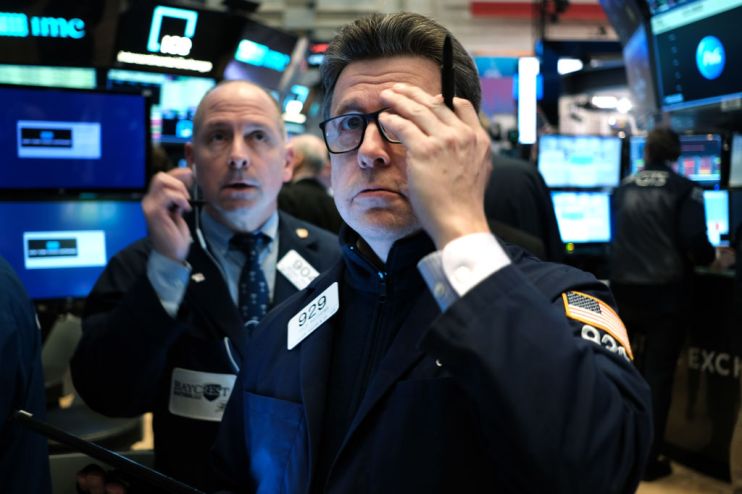Global stocks plunge amid oil crash and coronavirus outbreak

Global stock markets plunged today as a crash in oil prices and the rapid spread of coronavirus caused panic to set in on trading floors around the world.
The UK’s FTSE 100 slumped 7.7 per cent in its biggest one-day fall since the 2008 financial crisis. The rout wiped £125bn off the value of the UK’s biggest companies.
Wall Street fell by so much after trading opened that it triggered an automatic cutout system put in place to avoid stock market collapses, which paused selling for 15 minutes. The S&P 500 was 7.2 per cent lower as it headed towards the close, while the Dow Jones was down 7.4 per cent.
In Europe, the continent-wide Stoxx 600 plummeted 7.4 per cent. In trading-speak, this put it firmly in bear territory – a fall of 20 per cent since recent highs. France’s Cac 40 index tumbled 8.4 per cent while Germany’s Dax slid 7.9 per cent.
The carnage was the result of a perfect storm over markets, when traders already nervous about the economic impact of coronavirus were hit by Saudi Arabia’s decision to ramp up oil production and launch a price war with Russia.
The move came after Opec failed to agree on a supply cut to stabilise the oil market. Brent crude plunged as much as 30 per cent in the biggest price drop since 1991’s Gulf War.
“It takes a lot to stun you in financial markets,” said Deutsche Bank analyst Jim Reid. Yet he said the combination of coronavirus and the oil price move “has done that and deserves its own place in the history books”.
Worries over the global economy
Fear of a global recession caused by a simultaneous shock to both supply and demand also drove the sell-off.
Analysts at the UN’s economics body predicted the coronavirus shock will “depress global annual growth this year to below 2.5 per cent, the recessionary threshold for the world economy”.
Such warnings helped drive a stampede towards the safety of government bonds, pushing the yield on the two and five-year UK Gilts into minus territory for the first time ever. The yield on 10-year US Treasuries also touched a new record low below 0.5 per cent. Yields fall as prices rise.
Saudi Arabia’s move hit oil and mining-heavy indices such as the FTSE 100 hard. Oil giants BP and Royal Dutch Shell suffered their worst day ever, while the UK’s BHP, Centrica, Glencore and Anglo American also tumbled.
As a result of the oil shock, “what started as a virus-driven de-risking has now mutated into a broad-based, multi-asset capitulation,” said Paul O’Connor, head of multi-asset at Janus Henderson.
Coronavirus – which emerged in China in December – has now infected more than 111,000 people and killed close to 4,000. The bulk of deaths have been in China, while Italy is Europe’s worst-affected country.
Traders are increasingly betting – and hoping – that concerted efforts from central banks and governments will help boost market and consumer confidence.
Analysts at Barclays said they were now expecting 50 basis point (0.5 percentage point) rate cuts from the Fed at both the March and April meetings, following its emergency cut last week. They said a return to the zero lower bound – unthinkable just three months ago – “is now our base case”.
Pressure also rose on the Bank of England and European Central Bank, despite them having much less room than the Fed.
UK chancellor Rishi Sunak is expected to unveil spending plans to support British households and businesses in his Budget tomorrow.